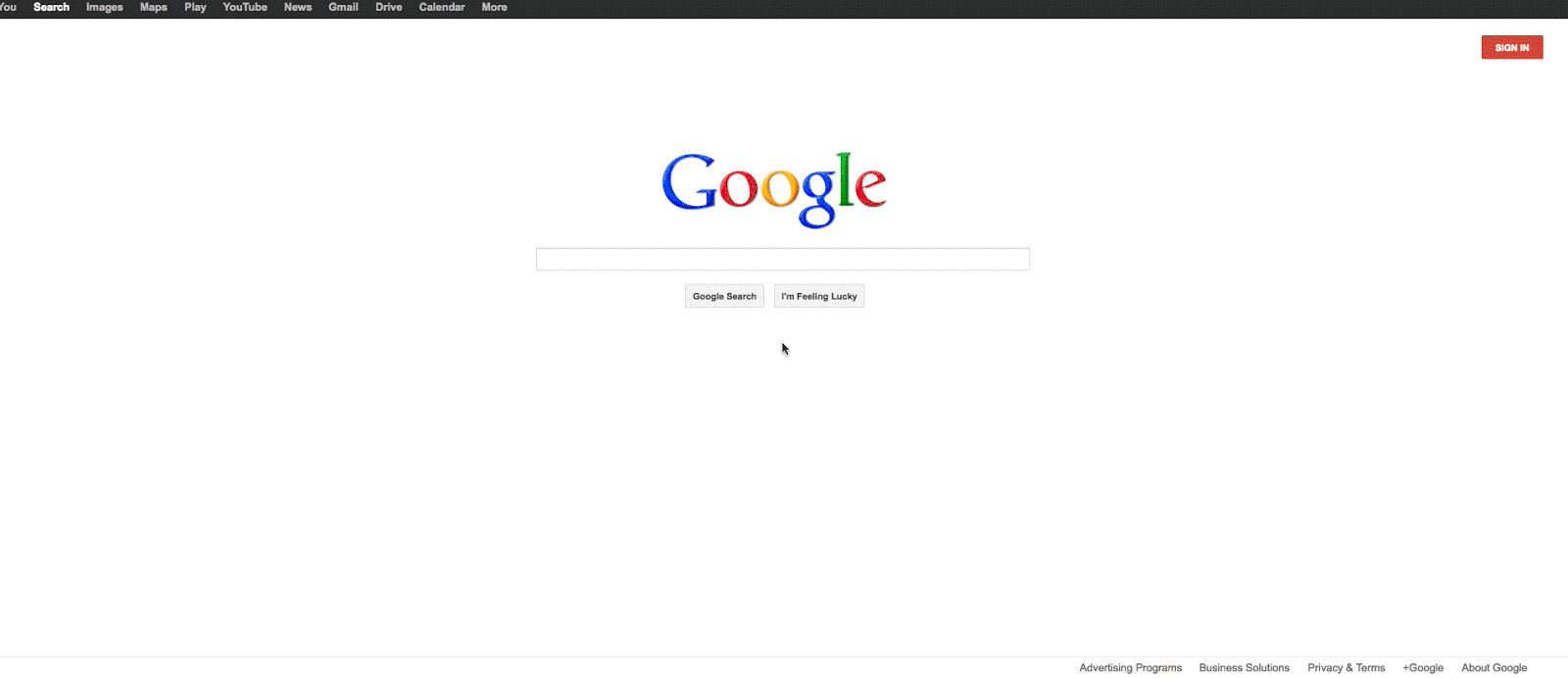Google makes 600+ changes a year.
Ninety-three percent of online activities start with a search. And at least 2 trillion searches occur every year.
No wonder you’re stressed. Overworked and probably underappreciated. After all, who gets the blame when it takes months before you start seeing real results.
So how do you manage it all? Juggle all of those balls in the air at one time?
Here are seven time management hacks for SEOs to keep up, stay sane, and get better results.
1. Buy a PPC Ad to Get the #1 Spot Instantly
You could spend the next few weeks sifting through keywords, fine-tuning your on-site optimization, and dutifully building backlinks.
Or you can simply spin up a few PPC ads to do the trick for you.
WordStream founder Larry Kim (@larrykim) suggests simply buying your way to a #1 ranking instantly with AdWords. It sounds trite. But this approach works for a number of reasons.
First and foremost: Google loves big brands. They do. So get over it. Stop complaining and start playing the game.
Chances are, your discount tire shop will never, ever, ever, ever, ever, ever outrank Goodyear or Firestone or even Discount Tires. (Did I say never?)
Try as they might, even with the most dedicated SEO, many companies will still never see that coveted number one search spot in competitive niches. With PPC however, they will.

PPC is also a great way to reveal keywords that you should come back to later to guide organic efforts. Keyword research is incredibly important but it’s also incredibly time-consuming.
AdWords helps you cut to the front of the line and get instant feedback on which way you should take a new client, website, product, or service.
2. Dig Deep Into Your Site: Do an Audit
Measure twice, cut once.
That’s the second hack, courtesy of SEO Consultant Alan Bleiweiss (@alanbleiweiss).
There’s no sense in doing anything — none of the tactics you know and love — without first identifying the top priorities with an SEO audit.
“Do it before determining ongoing work, so that site owners won’t eventually need to come to somebody like me wondering, ‘Why haven’t we seen the results we hoped for, after spending two years doing SEO?’”
This is one of those do the work now so you don’t have to do it later kinda things. You gotta take time to save time.
Stuff changes Constantly. An audit will uncover if this site’s optimized for 2025, 2015, or, god forbid, 2005.
Guidelines also change because: Google. What worked once won’t always work years from now.

3. Tell a Group of SEOs That PPC-ers Are Better at Time Management (and Watch Them Get to Work)
SEOs are smart, creative, hard-working people. They’re also incredibly prideful, which is a great thing. It means the majority of them take their work seriously. They want to see results for both themselves and clients.
Social marketer Andrew Lolk (@andrewlolk) gave a tip that plays on this extrinsic motivation and pride. Tell me that someone does something better, and I’ll do my damnedest to prove you wrong. And hurt them. (I kid.)
Lolk says it’s the same for SEOers. Tell them that the PPC crowd is better at time management, and watch SEO productivity soar.
Cue: Cheesy stock image of two beasts literally locking horns to illustrate the competitive tension between SEO and PPC.

Boosting web traffic can be done in many ways, but the two most promising and popular are SEO and PPC. And many online marketers are either in one camp or the other. (Even though they shouldn’t be. Because SEO and PPC can work together. See point #1.)
So if you tell an SEO expert that PPC is the way to go, they’re going to let you know that you’ve clearly misspoken.
The first wiki developer Ward Cunningham has even coined his own law (Cunningham’s Law) around this. “The best way to get the right answer on the Internet is not to ask a question, it’s to post the wrong answer.” (I had no idea we can literally just make up laws. The internet is truly the best.)
See something wrong or that you don’t agree with? Human tendencies predict that you are going to want to correct it. After all, it’s your duty! You must warn others of the misinformation!
It’s amazing what a little friendly competition can do for productivity.
4. Be Lazy: Get Others to Do the Work for You
SEOs might be ambitious and hardworking. But that doesn’t mean you can’t use shortcuts, either.
SEO Consultant Bill Hartzer (@bhartzer) suggested crowdsourcing as his productivity hack. “Post an article title on Facebook and let FB write the article for you,” he said.
Meta. Just how we like it.
User-generated content (UGC) pays off several different ways. Let’s count them:
✅ Ratings and reviews boost social proof, which can provide validity for your product or service. “My friend/coworker/boss just commented on a company’s Facebook post? It must be a worthwhile org.”
✅ Ratings, reviews, crowdsourced images, and Q&A opportunities will help your site’s rankings. Higher rankings mean more traffic. More traffic means more conversions. It’s science.
✅ These star-ratings get pushed to SERPs, too, which have been proven to increase click-through rates.

✅ Selling a product that customers can snap a photo of? These photos will help image search visibility, too.
✅ A recent study found that marketing campaigns that include UGC content have 20 percent more influence on a buyer’s purchasing decisions. UGC works.
✅ And don’t forget Hartzer’s Facebook idea. Coca-Cola had big success with this. In fact, their Facebook page was entirely created by users.
See? Who said being lazy doesn’t pay off?!
5. Create, Implement & Follow SEO Processes
OK. Enough relying on other people for everything. Time for me to contribute.
Stop chasing hacks for half a day and put together processes that will shave hours off each week to come. Trust in practical processes.
Modern day SEO is simply too complex. It’s too big and broad and nuanced. You’ll never be able to delegate or train all the intricacies without good systems in place.
Tactics die out. Tools and trends change. But search principles stick around.
We already touched on one of these: keyword research. The tools change. The metrics fluctuate. But the way in which you go about it doesn’t.

Same goes for page speed. Big, bloated images are a killer. You can smush (or compress) them, crop them, and host them elsewhere.

Those steps are relatively easy. Nothing a few screenshots couldn’t fix. ‘Specially when you consider what’s at stake: 74 percent of traffic bounces if pages don’t load within five seconds.
So before your junior peeps even think about uploading a new blog post, they better follow a procedure to make images as small as humanly possible.
Also, optimize your written content. Link to relevant content on your site. Consider putting together a good checklist for your team to follow.
If you’ve gotta do it, do it right. And then delegate it with a good process.
6. When in Doubt, Outsource
One time a client came to me for help. Their scope was big. Some of it was technically tricky.
So instead of attempting to bite off the whole thing, I worked with Marie Haynes to get an audit (see point #2). Now, I get nothing for saying that. She has no idea I’m writing this. But she was incredibly helpful; diagnosing something in a few days that would have taken me weeks.
To this day, if you asked me to do a link audit on potentially spammy leaks, I would run and beg on bended knees to see if Marie could do it instead.

The word “outsourcing” conjures up images of going back and forth with people who barely speak the same language. No offense meant. They’re super smart and good at what they do. But cultural differences and language barriers take their toll.
So outsourcing gets a bad rap — a negative connotation — when in reality, outsourcing pieces of your scope by working with other specialty contractors can be immensely helpful and productive.
SEO is too big now. Hell, it’s even spread to Amazon, where 44 percent of all product searches start. So don’t forget to add that to your scope now, too.
You’ll never master each specific slice. Outsourcing is an affordable alternative, drastically slashing your own personal time investment while increasing results at the same time.
You already know this intimately. “Full-service” is a lie. There’s too much complexity and not enough hours in the day. So stop trying to be the hero. Just worry about results, instead.
7. Time Block Your, Well, Time
Research has shown that we’re doing too much and our brains can’t handle it. When we go back and forth between tasks, we break momentum — and it’s killing productivity. Social scientist David Meyer found that even quick mental blocks from going from one thing to another have great cost — as much as 40 percent of productivity time.
So it’s time to get strategic. It’s hard enough getting everything done in a day without also adding in the little things that take away from your productivity.
Enter time blocking.
Timeboxing means giving each activity its own… wait for it… box. This prioritizes the important stuff. If something else comes up, your time is already committed into an appointment.
Ralph Baresi has an excellent article on the topic. Like the ‘bookend’ method that uses Mondays and Fridays to prep and organize, while Tuesday through Thursday is reserved for heads-down, focused work.
For example, I’m writing this early. Real early. Like it’s-still-dark-outside early. Because I can’t write later in the day. Too much going on. Too many distractions.
As a result, I only take meetings in the afternoons. Never in the mornings. And Fridays are completely off limits.

Breaking your schedule down like this simplifies your day, but also places a priority on priorities. It’s right there on the calendar. It must be done whether you like it or not.
Conclusion
SEOs are incredibly talented. But Superman/woman you are not. You can’t do it all.
Even on days you can cross everything off your list, there are probably a few things that fell a little short. You spent too much time doing X. You tried to fit four things into the time you should have just been doing one.
Your time is incredibly sacred. Or at least, it should be, when too often, it isn’t.
Stop bragging about the hours you’ve worked and re-prioritize the results those hours are netting, instead.
Image Credits
Featured Image: Pixabay.com
In-post Image: Pixabay.com
Screenshots by Brad Smith. Taken June 2017.





